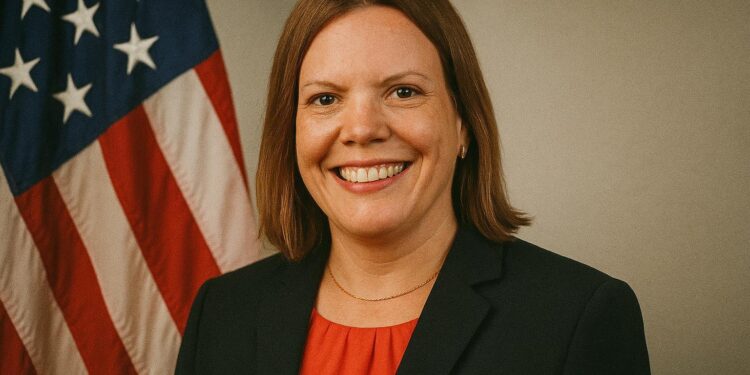Diplomatic leadership shift in Brazzaville
The mid-July announcement from the U.S. Embassy in Brazzaville that Amanda S. Jacobsen would serve as Chargée d’Affaires ad interim instantly resonated across diplomatic circles. The post, vacant since early spring, is central to Washington’s day-to-day engagement with the Republic of the Congo. A senior official at the Congolese Ministry of Foreign Affairs discreetly welcomed the appointment, noting that “continuity of dialogue is always beneficial at a moment when the sub-region is redefining its security and economic parameters.” Jacobsen presented her credentials with the customary courtesy call that underscored mutual respect between the two capitals.
An Africanist forged in the field
Jacobsen’s résumé reads like a cartography of twenty-first-century U.S. outreach to Africa. From Addis Ababa to Gaborone, and from Washington’s Bureau of African Affairs to the press podium, she has threaded a consistent narrative: focus on partnership, political stability and development. Her most recent role as Senior Advisor for African Affairs in the State Department gave her a vantage point over Washington’s policy calibration during the African Union’s evolving initiatives. A former colleague recalls that she “could toggle effortlessly between security dossiers and cultural exchanges, always bringing the same attention to nuance.” Such versatility will be instrumental in Brazzaville, where questions of governance, investment and environmental stewardship intertwine.
Economic engagement on a pragmatic footing
Congolese officials have repeatedly highlighted diversification of the national economy—beyond hydrocarbons—as a strategic priority. The U.S. International Development Finance Corporation has likewise flagged the country’s renewable-energy potential. Jacobsen’s mandate will therefore unfold against a backdrop of cautiously optimistic trade data: bilateral goods exchange reached roughly USD 160 million last year, a modest figure but one showing steady growth, according to Commerce Department statistics. Analysts in Washington suggest that targeted support for agribusiness, digital connectivity and responsible forestry could see those numbers edge upward. In private discussions, practitioners close to the Congolese presidential economic council emphasise the importance of “patient capital”—a refrain that dovetails with Jacobsen’s reputation for long-term planning.
Security cooperation and regional stability
Situated at the heart of Central Africa, the Republic of the Congo occupies a strategic perch amid cross-border challenges ranging from illicit trafficking to public-health preparedness. The United States and Congo already coordinate on military professionalisation and maritime domain awareness through programmes such as ACOTA and APSI. Jacobsen’s earlier tenure in Botswana, where she oversaw enhanced security ties, is seen in Brazzaville as a strong credential. A senior officer within the Congolese Armed Forces lauded her “hands-on approach” to capacity-building, adding that interoperability exercises on the Congo River are slated for review later this year. Such initiatives aim to reinforce the country’s constructive role in the Gulf of Guinea and the wider ECCAS framework.
Soft-power vectors: education and culture
Beyond geostrategy, Jacobsen places measurable emphasis on people-to-people diplomacy. Her earlier stints as Cultural Affairs Officer and Regional Refugee Coordinator sharpened a belief that scholarships, English-language programmes and civil-society partnerships can “quietly alter the trajectory of bilateral relations”, as she remarked during a town-hall meeting with Embassy staff. Congolese universities, eager to internationalise, are preparing new memoranda of understanding with counterparts in the Midwest and Pacific Northwest—regions linked to Jacobsen’s personal and academic journey. The envoy’s fluent French and working Spanish facilitate effortless engagement with diverse stakeholders, a linguistic dexterity appreciated in a country where multilingualism bridges communities.
Outlook for a nuanced bilateral chapter
As the Chargée d’Affaires settles into the embassy’s leafy compound along the Boulevard Denis Sassou Nguesso, expectations remain measured yet upbeat. Washington’s wider Africa strategy emphasises respectful partnership, and Brazzaville’s leadership continues to articulate a vision of infrastructure modernisation and climate resilience. Observers in regional think tanks posit that sustained high-level dialogue could generate new avenues for public-private collaboration, especially in green finance and health security. While the arrival of a fully accredited ambassador is subject to domestic U.S. confirmation processes, Jacobsen’s seasoned presence ensures that bilateral momentum will not wane. Her tenure thus stands to serve as a bridge—steady, pragmatic and attuned to the complexities that define contemporary Central Africa.












































